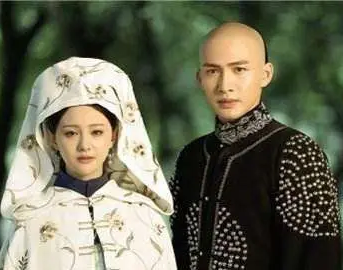The Donglin Party was a political faction in the mid to late Ming Dynasty of Chinese history, named for the fact that many of its members came from the Donglin Academy. The party was known for its advocacy of Confucianism, opposition to eunuch power, and corruption of officials. However, with the fall of the Ming Dynasty and the establishment of the Qing Dynasty, the activities and influence of the Donglin Party also underwent significant changes. This article will explore the activities of the Donglin Party in the Qing Dynasty and its differences from the Ming Dynasty.

During the Ming Dynasty, the Donglin Party was an active political force that advocated for integrity in government, opposed eunuch interference in politics, and formed a significant force in the court. Members of the Donglin Party entered the bureaucracy through the imperial civil service examinations and held important positions at various levels of government. They had some influence in culture, education, and policy-making. However, due to their staunch opposition to powerful officials and eunuch groups at that time, Donglin Party members were frequently suppressed and persecuted.
In the Qing Dynasty, the activities and role of the Donglin Party underwent fundamental changes. First, in the early Qing Dynasty, in order to consolidate rule, the Qing government cleaned up various political factions inherited from the Ming Dynasty, and the organization and influence of the Donglin Party also weakened accordingly. Secondly, the Qing Dynasty established a stricter centralization of power system, weakening local forces, which led to a significant decline in the political influence of the Donglin Party, which was mainly composed of local gentlemen.
In addition, the Qing Dynasty also had a different attitude towards scholars. Although the Qing Dynasty also valued Confucianism, they were more cautious about the political activities of scholars. The Qing rulers preferred to use the imperial civil service examination system to select officials rather than allow scholars to form organized political groups. Therefore, the Donglin Party had almost no significant presence on the political stage of the Qing Dynasty.
In summary, the Donglin Party was an important political faction in the Ming Dynasty with significant political influence. They advocated for integrity in government, opposed eunuch power, and contributed to culture and education. However, in the Qing Dynasty, the activities and influence of the Donglin Party greatly diminished. They no longer existed as an independent political force but gradually integrated into the ruling system of the Qing Dynasty. This change reflects the differences in the political environment between the Ming and Qing dynasties and also demonstrates the different attitudes towards the political activities of scholars in different dynasties. The historical changes of the Donglin Party provide us with a valuable perspective to understand the political dynamics of the late period of feudal society in China.
Disclaimer: The above content is sourced from the internet and the copyright belongs to the original author. If there is any infringement of your original copyright, please inform us and we will delete the relevant content as soon as possible.
































